Auction house Sotheby's Dubai has unveiled a diamond that's literally from out of this world.
Sotheby's calls the 555.55-carat black diamond — believed to have come from outer space — "The Enigma." The rare gem was shown off on Monday to journalists as part of a tour in Dubai and Los Angeles before it is due to be auctioned off in February in London.
 Full Story
Full Story
A 4 billion-year-old meteorite from Mars that caused a splash here on Earth decades ago contains no evidence of ancient, primitive Martian life after all, scientists have reported.
In 1996, a NASA-led team announced that organic compounds in the rock appeared to have been left by living creatures. Other scientists were skeptical and researchers chipped away at that premise over the decades, most recently by a team led by the Carnegie Institution for Science's Andrew Steele.
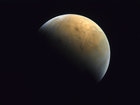 Full Story
Full Story
In a medical first, doctors transplanted a pig heart into a patient in a last-ditch effort to save his life and a Maryland hospital said Monday that he's doing well three days after the highly experimental surgery.
While it's too soon to know if the operation really will work, it marks a step in the decades-long quest to one day use animal organs for life-saving transplants. Doctors at the University of Maryland Medical Center say the transplant showed that a heart from a genetically modified animal can function in the human body without immediate rejection.
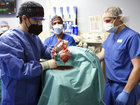 Full Story
Full Story
A team of scientists is sailing to "the place in the world that's the hardest to get to" so they can better figure out how much and how fast seas will rise because of global warming eating away at Antarctica's ice.
Thirty-two scientists are starting a more than two-month mission aboard an American research ship to investigate the crucial area where the massive but melting Thwaites glacier faces the Amundsen Sea and may eventually lose large amounts of ice because of warm water. The Florida-sized glacier has gotten the nickname the "doomsday glacier" because of how much ice it has and how much seas could rise if it all melts — more than two feet (65 centimeters) over hundreds of years.
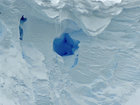 Full Story
Full Story
China on Wednesday defended its international scientific exchange programs in the wake of the conviction of a Harvard University professor charged with hiding his ties to a Chinese-run recruitment program.
Foreign Ministry spokesperson Zhao Lijian said China manages such exchanges along the same lines as the U.S. and other countries.
 Full Story
Full Story
Iran appears to be preparing for a space launch as negotiations continue in Vienna over its tattered nuclear deal with world powers, according to an expert and satellite images.
The likely blast off at Iran's Imam Khomeini Spaceport comes as Iranian state media has offered a list of upcoming planned satellite launches in the works for the Islamic Republic's civilian space program, which has been beset by a series of failed launches. Iran's paramilitary Revolutionary Guard runs its own parallel program that successfully put a satellite into orbit last year.
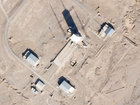 Full Story
Full Story
Not all two-legged dinosaurs were like the lumbering Tyrannosaurus rex.
An analysis of dinosaur tracks from 120 million years ago unearthed in Spain adds to growing evidence that these meat-eating prehistoric beasts belonging to the same group as T.rex could be highly agile.
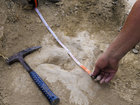 Full Story
Full Story
A Japanese billionaire and his producer rocketed to space Wednesday as the first self-paying space tourists in more than a decade.
Fashion tycoon Yusaku Maezawa and producer Yozo Hirano, who plans to film his mission, blasted off for the International Space Station in a Russian Soyuz spacecraft along with Russian cosmonaut Alexander Misurkin.
 Full Story
Full Story
The emergence of the new omicron variant and the world's desperate and likely futile attempts to keep it at bay are reminders of what scientists have warned for months: The coronavirus will thrive as long as vast parts of the world lack vaccines.
The hoarding of limited COVID-19 shots by rich countries — creating virtual vaccine deserts in many poorer ones — doesn't just mean risk for the parts of the world seeing shortages; it threatens the entire globe.
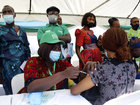 Full Story
Full Story
- WHAT IS THIS NEW COVID-19 VARIANT? -
South African scientists identified a new version of the coronavirus this week that they say is behind a recent spike in COVID-19 infections in Gauteng, the country's most populous province. It's unclear where the new variant first emerged, but scientists in South Africa first alerted the World Health Organization and it has now been seen in travelers to Belgium, Botswana, Hong Kong and Israel.
 Full Story
Full Story



